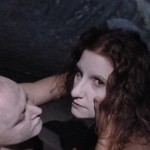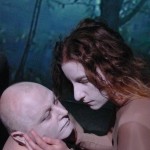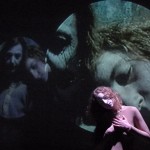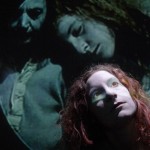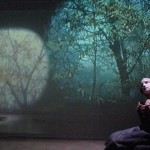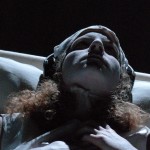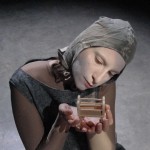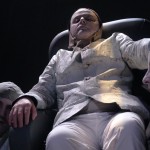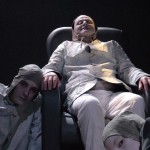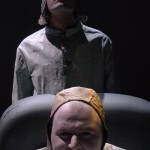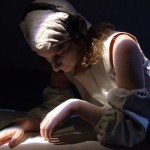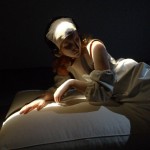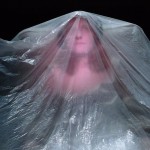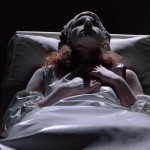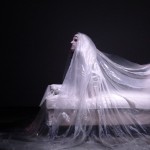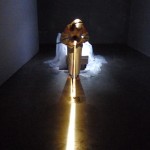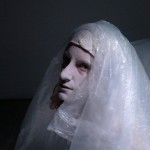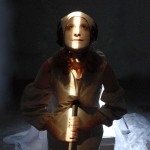This website uses cookies so that we can offer you the best user experience possible. Cookie information is stored in your browser and performs functions such as recognizing you when you return to our website and helping our team to understand which sections of the site you find most interesting and useful.
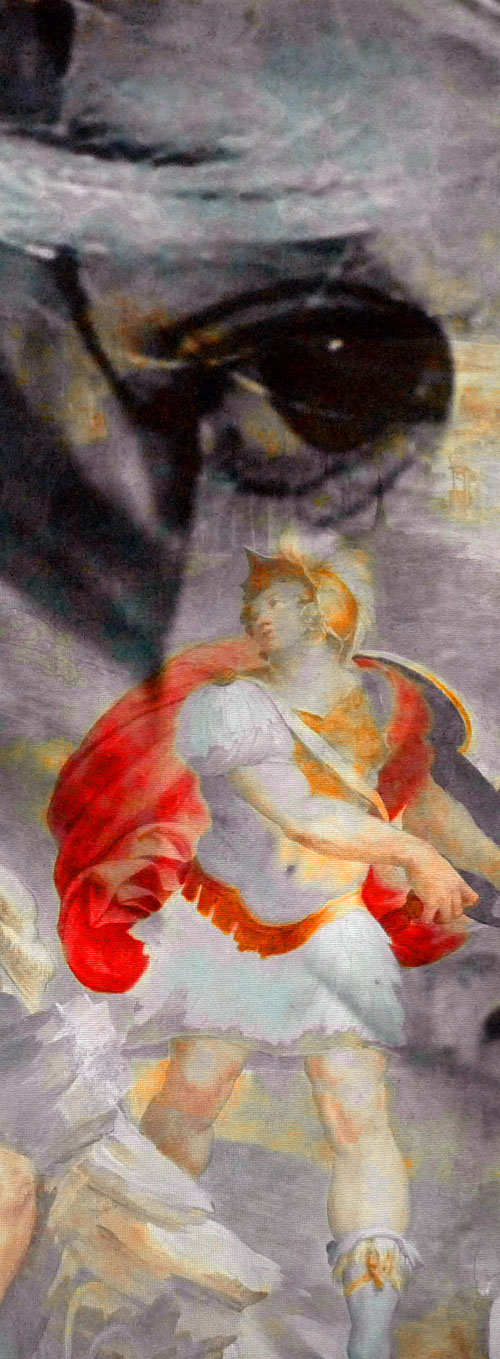
Adelchi
Lenz Theatre | Hall East
Sunday 7 December | h 21:00
Tuesday 9 December | h 22:30
Wednesday 10 December | h 21:00
Thursday 11 December | h 22:30
Friday 12 December | h 22.30
LENZ REFRACTIONS
ADELCHI | 60’
by Alessandro Manzoni
first creation for ND’T#19
After the macro-production of the Betrothed in 2013, il two-year project dedicated to the work of Alessandro Manzoni continues in 2014 with a new creation inspired byAdelchi. Placing the founding authors of Italian culture at the center of its performative investigation, Lenz imposes a profound reflection on the poetic power and rhetoric of language. The staging of tragedy Adelchi (1822), it is the motus for a careful theoretical reflection on Italian drama and on the tragic genre in particular.
Ermengarda she is the sensitive young actress Carlotta Spaggiari, trained in the Lenz theater workshops aimed at people with autism spectrum disorders, and former Nun of Monza as a child in 'The Betrothed'. Charles Right, already Fra' Cristoforo in 'The Betrothed', faces the very difficult role of the young Adelchi, of the 'moral' hero, fundamental figure in Manzoni's poetics; with him, Franck Berzieri, interpreter of numerous Lenz creations, engaged in the dual role of father Desiderio and Charlemagne, both actors with psychic sensitivity who trained in the permanent laboratory created in collaboration with the Parma Local Health Authority - Integrated Mental Health Department. This stage project substantiates the multi-year search for a pedagogical "verb" that makes people affected by autism spectrum disorders able to express silenced emotions through the dramaturgical-sensory stimulations of the theatrical experience. Through this process the perspective from which to look at sensitivity is reversed: the apparent cognitive and behavioral limits of sensitive people are no longer symptoms of a pathological deficit but become elements to be elaborated and translated into contemporary aesthetic language, through comparison and competition – also physical and vocal – with the classics.
Dell'Adelchi is the figure of Ermengarde that is transduced into dramaturgical images that outline female bodies of irreducible beauty, never subjected to conventional constraints. Manzoni's reference attaches to the project on Lenz's Betrothed a reflection/refraction on the oppositional force of renunciation of the body to the point of mortal delirium against the brutality of the cliché.
Ermengarda is psychophysical love, the wound of abandonment is in the body and in the spirit, the pain transfigures and cements the heroine, making her mute and hard to the demands of normal living.
Margrete from Goethe's Faust, Hölderlin's Antigone, Kleist's Penthesilea, Rosaura di Calderón de la Barca, Shakespeare's Ophelia, Lucia and Gertrude by Manzoni, Ovid's Dido and many other female figures have overlapped with each other, in theatrical time, until only one is composed, as large as an installation by Christo – the great American artist – under which there is only emptiness, solitude and freedom like pure air.'
Ermengarda becomes an epiphany of encounter of multiple lived stories, of broken loves, suspended, postponed, forgotten, imposed and liberated, supporting figure of film sequences marked like septenary verses of a tragic chorus of the present time. Manzoni's Ermengarde represents the existential and theatrical culmination of the remission that derives from the refusal to which Charlemagne condemns her, making her an innocent victim of impotent and depersonalizing suffering. The epilogue of the tragedy is suicide as a gesture of extreme withdrawal from the self and the pain of existence.
'Here is another figure of a woman who loves until death and in the delirium of love communicates directly to Heaven her mortal amazement in the face of her own abandonment. Ermengarda of Manzoni's Adelchi does not surrender to the reality of history, the one that powerful males decide, but he gives himself over completely to his own feelings, to the intimate story of a lover that all passion contains, in the unsaid, in the undeclared, in the chaste constraint within one's own ego. E, like a delirious and light Penthesilea, let Eros and Thanatos lead her by the hand beyond the edge of life. The choir, subjectively, he can only describe his reunion with Nature by singing a requiem in progress in front of his silent body. Only an equally powerful and light sensitivity of an actress can be experienced, without fiction, such a culmination of pathos and expressive power.'
In Adelchi, History is contemplated through the internal drama of the protagonists, sublimated into a religious vision of life. Adelchi and Ermengarda are spirits full of contrasts between ideals and feelings (peace and glory for the first, the husband's still alive love for the second). They live for high and noble ideals, they understand the anguish and suffering of others and only find in death the full realization of their complex and troubled personality. Adelchi, before dying, will say that on earth “all that remains is to do wrong or suffer it”: this is typical Jansenistic pessimism, which can be contrasted with a providential conception of pain (suffering is a gift from God since it proves that no harm has been done).
Dramaturgy | imagoturgy | film scenes || Francesco Pititto
Installation | plastic elements | regia || Maria Federica Masters
Musica || Andrew Azzali
Interpreters || Carlotta Spaggiari | Charles Right | Franck Berzieri
Treatment ||Elena Sorbi
Rehabilitation project manager || Paolo Pediri
Organization || Ilaria Stocchi
Communication || Violetta Fulchiati
Lights and technique || Alice Scartapacchio
Production || Lenz Refractions








